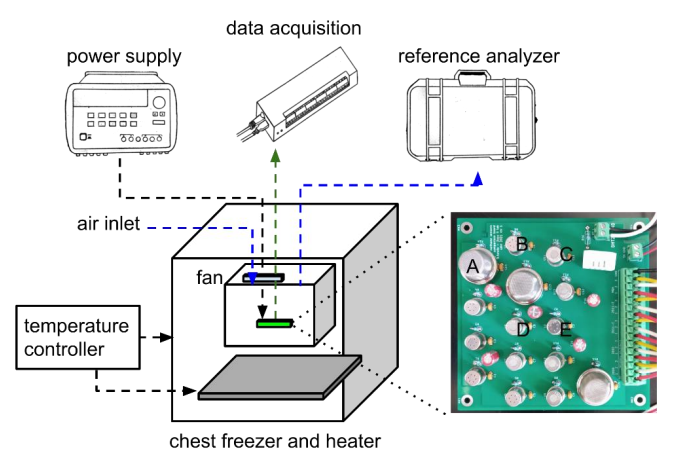Air pollution represents a significant concern in today's modern society, with severe toxicological implications for both human health and the environment. As we strive to reduce the emissions of air pollutants, it is imperative that we make substantial advancements in monitoring air quality with high spatiotemporal precision and a deep understanding of their adverse effects on human health. While our comprehension of how air pollutants impact human health is well-established, it remains confined to existing pollution characterization techniques. Consequently, each breakthrough in sensing technology holds the potential to significantly enhance our understanding of how pollutants interact with both human beings and the environment.
Recent strides in low-cost sensor technologies have ignited innovation in assessing the detrimental effects of air pollutants. Our research group is actively involved in multiple projects aimed at developing and deploying low-cost air quality sensors to evaluate the impact of air pollutants on human health and the environment. The evolution of low-cost sensing techniques stands to benefit various aspects, including personal exposure estimation, validation of regional transport models, and projections related to global climate change. Nevertheless, concerns regarding their accuracy and long-term reliability loom large, particularly in practical applications, where atmospheric pollutant concentrations approach the limits of detection for these sensors.
Our research group has taken a pioneering step by publishing the first paper that integrates data from low-cost sensors, monitoring stations, and satellite technology to create comprehensive pollution maps. This work meticulously examines the advantages and disadvantages of each data source, ranging from accuracy to spatiotemporal distribution. Additionally, we delve into the methodology and uncertainties associated with integrating these diverse data streams.

Methane, a greenhouse gas akin to carbon dioxide, has been steadily increasing in atmospheric concentrations due to human activities, accounting for nearly 30% of global warming since the onset of the Industrial Revolution. Because methane has a relatively short atmospheric lifespan, it has garnered substantial attention from researchers for its potential to expedite global warming. Methane emissions result from a variety of natural and anthropogenic processes, and one of our particular areas of focus is the mitigation of methane emissions from landfills.






